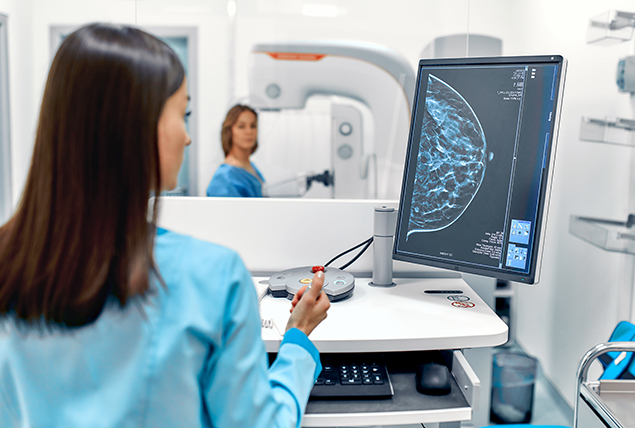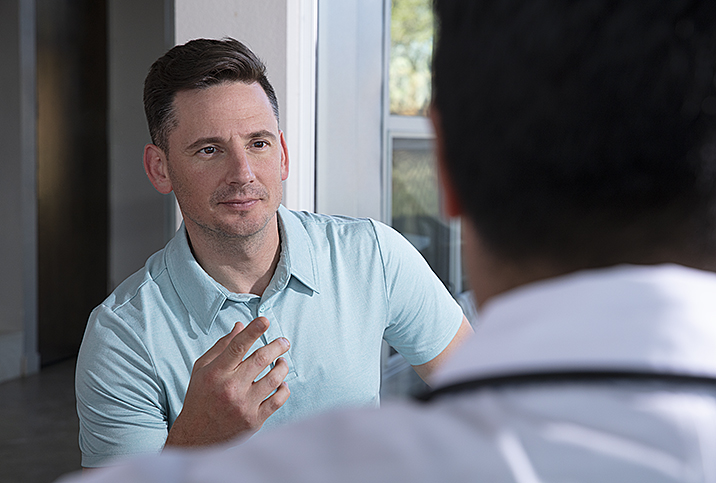HPV and Breast Cancer: Is There a Link?

Human papillomavirus (HPV) is the most common type of sexually transmitted infection (STI) in the United States, and there are more than 100 different kinds of HPV. For 9 out of 10 people, HPV goes away on its own. It doesn't cause any symptoms and you may not even know you have it.
There are two main groups of HPV: low risk and high risk. Low-risk HPV tends to cause genital warts and doesn't usually cause cancer. People who have high-risk types such as HPV 16 and 18 have an increased chance of cancer, particularly of the cervix but also genital, anal and throat cancers. Almost all cervical cancer is caused by HPV, according to the World Health Organization (WHO).
Monte Swarup, M.D., an OB-GYN in Arizona and the founder of the information site HPV Hub, noted that high-risk HPV can cause cancer because the immune system might not be completely destroying the cells that HPV infects.
"The cells that are infected may develop mutations, which can become cancerous," Swarup explained.
Recently, there's been some evidence that HPV also may be linked to breast cancer.
Is HPV linked to breast cancer?
"Ongoing research is being conducted to determine if HPV is clearly associated with breast cancer, and the evidence is controversial at this time," said Monique Gary, D.O., a breast surgical oncologist and medical director of the Grand View Health/Penn Cancer Network cancer program in Sellersville, Pennsylvania.
What medical experts do know is high-risk HPV can cause inflammation and cell growth that makes the ideal environment for cancer to thrive, Gary noted.
"HPV DNA has been identified in breast cancer cells in several studies, but its presence alone is not enough to indicate causation," Gary said.
One study from 2017 found high-risk HPV DNA in 42 percent of abnormal breast cancer tissue samples. In a 2019 study of 72 women with breast cancer, researchers found about 48 percent had HPV DNA in their breast tissue samples. Both studies concluded that the relationship between HPV and breast cancer was still unclear and more research is needed.
In a 2020 study, authors noted that HPV could play a role in certain types of breast cancer, but more studies are needed to figure out that role.
According to Felice Gersh, M.D., an OB-GYN and the founder of Integrative Medical Group of Irvine in California, HPV might travel from the site where it resides in the cervix to the breasts, possibly through the bloodstream. She noted HPV may act the same in the breasts as it does in the cervix when it causes cancer. If the virus is in an area of high inflammation, it can cause the DNA inside the virus to become unstable. Over time, HPV can turn normal cells—in this case, breast cells—into abnormal cells and, potentially, into cancer.
Are you at risk for HPV or breast cancer?
More than 42 million people in the U.S. have HPV. Being sexually active is the biggest risk factor for HPV. If you have multiple sexual partners or your partner has multiple partners, you can increase your chances of an HPV infection.
Breast cancer affects 1 in 8 women in the U.S. Some get breast cancer without having any risk factors. However, even if you are at higher risk of breast cancer, it doesn't necessarily mean you'll get it.
Some common risk factors for breast cancer include:
- Family history of breast or ovarian cancer
- Genetic mutations, such as BRCA1 and BRCA2
- Being older
- Having dense breasts
- Being overweight
- Using hormone replacement therapy (HRT)
- Smoking or alcohol use
Cancer screening is key
Talk with your healthcare provider if you think you might have HPV. They can give you a test that detects the presence of HPV, Swarup advised. However, the test is only for females, as there's no HPV test for males as of yet.
Oftentimes, the test can be done at the same time as a Pap smear, where your provider collects a sample of cells from your cervix. These cells can be looked at under a microscope to see if they appear abnormal from an HPV infection, which could potentially turn cancerous.
"The good news is that HPV vaccination rates have increased tremendously," Gary said. "This is part of the reason why we have seen declines in HPV-associated cancers."
The Centers for Disease Control and Prevention (CDC) states children as young as age 9 can be vaccinated against HPV, and anyone can get a vaccine through age 26.
If you know you have HPV, you don't need to do anything differently for breast cancer screening, according to Gersh.
"The majority of women have had cervical infections with HPV. Routine imaging screening schedules of every one to two years for detection of breast cancer is what is standard as a medical recommendation," Gersh said.
This screening schedule also would be recommended for people who have a history of HPV. For most people, this means getting a mammogram.
"Just because something can cause cancer doesn't mean that it will," Gary said. "Until we have a better understanding of if and how it does, we can optimize our wellness by focusing on the things that we know that impact our health in positive ways."
These choices can include eating a healthy diet, getting plenty of rest and exercise, and finding ways to decrease stress.


















